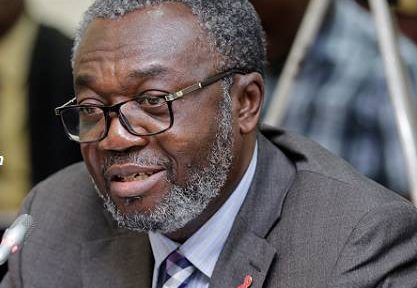Hunger kills more than coronavirus – Presidential Health Advisor
The number of people who could face starvation and hunger under lockdown far exceeds deaths caused by the coronavirus, Presidential Advisor, Dr Anthony Nsiah-Asare, has suggested.
He observed that: “Hunger can kill more than coronavirus.”
His comment was to justify President Nana Akufo-Addo’s decision to lift a three-week lockdown imposed in Accra, Tema, Kasoa and Kumasi.
Although Dr Nsiah-Asare did not state figures, Mercy Corps, a global non-governmental, humanitarian aid organisation based in the US, estimates that “almost one in every 15 children in developing countries dies before the age of five, most of them from hunger-related causes”.
The organisation also explained that about 21,000 people die of hunger or related causes every day.
Dr Nsiah-Asare explained that the government based the decision on social science and pure science derived from the trend of the virulent infection in Ghana.
The former Director-General of the Ghana Health Service (GHS), who was a guest on Joy TV’s PM Express, explained on Tuesday that: “Health is not only pure physics, chemistry and biology science. Health is also a social science [which includes] psychology- the way of living of the people.”
A section of the public lamented their inability to have access to food during the lockdown and Mr Akufo-Addo might have factored that into the reasons for the restriction on movement to be cancelled.
For him, malnourished children die more than coronavirus.
He explained that coronavirus infects very fast but malaria, Tuberculosis, measles and malnutrition kill many more people.
For him, “somebody cannot feed himself, or somebody can become psychological because you have locked the person in a house…”
In his view, social intervention programmes will not cater for all the needy. Based on this and other factors, he feels the ease in restricting movement will not derail efforts to curtail the disease.
Mr Akufo-Addo indicated that Ghana had reached a capacity where it could trace victims of the disease, test, isolate, quarantine and offer treatment. All this resulted in a relaxation of the partial lockdown.
“We are also looking at the demography of the disease itself, in terms of the sick, in terms of death. What we will like to do, as decision-makers, is to balance all these factors and to come to a conclusion and a set of solutions that will benefit people and of course, protect the economy,” he said.



